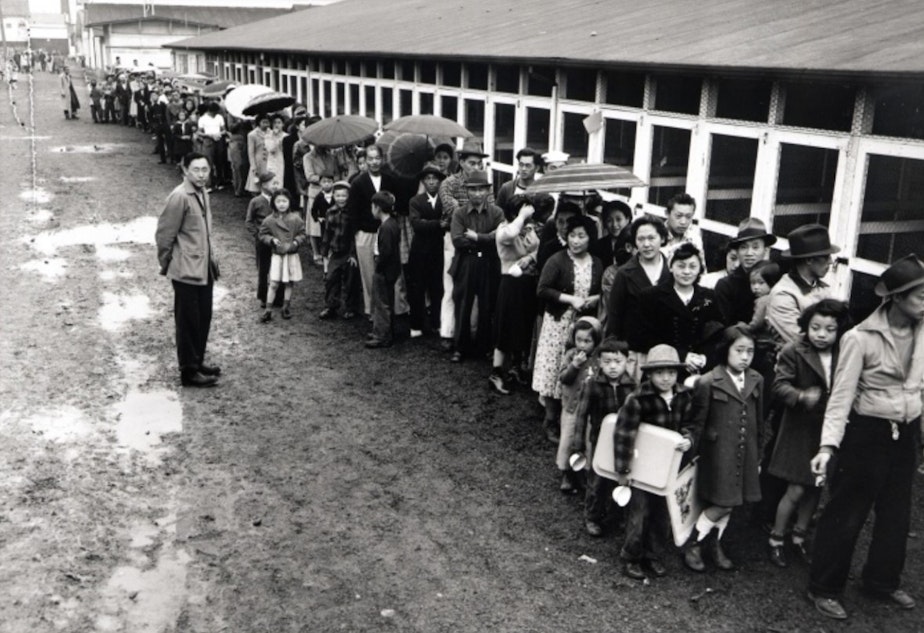New memorial honors Japanese Americans incarcerated at the Washington State Fairgrounds

Thousands of Japanese Americans were incarcerated at the Washington State Fairgrounds during World War II.
Now, there is an effort to create a permanent memorial gallery for those who were held here.
If you or a loved one lived at these camps, the Japanese American Citizens League is asking you to make sure those names are listed here.
If you have attended the Washington State Fair in Puyallup, you may have been eating cotton candy and corn dogs along the roller coaster and the grandstand. On that very spot, over 7,600 Japanese Americans were incarcerated.
Eighty years ago, executive order 9066 was signed. It allowed the forced removal of all Japanese Americans on the West Coast. They were locked up in military style "barracks." Converted animal pens and horse stalls served as living spaces, offices, and hospitals.
Eileen Yamada Lamphere is the president of the Puyallup Valley Chapter Japanese American Citizens League. She said many Americans and Seattleites don't know the history of these grounds.
“People don't know what happened to American citizens. They don't realize two thirds of them were American citizens,” Lamphere said.
Lamphere also said there is "a lesson to be learned from the past" that is "relevant now."
Sponsored
The relevant lesson, she added, applies to how we currently treat immigrants and refugees in the U.S., whether they're here legally or illegally — "especially if they're people of color," she said.
Lamphere and the Japanese American Citizens League are leading an effort to create a permanent memorial on the fairgrounds. Lamphere said this exhibit will honor those who were incarcerated at the Puyallup Assembly Center and it will help educate people about what happened.
The memorial will include a plaque of names, survivor stories, and a way for family members to look up the records of loved ones and learn more.
The Japanese American Citizens League is asking for help from survivors and families of survivors. Many of the names in the records are misspelled. Non-Japanese record keepers were trying to dictate Japanese names just by listening to them.
Lamphere said the Japanese American Citizens League also knows names are misspelled because some recorded names end in consonants; Japanese names always end with a vowel.
Sponsored
Sometimes, record keepers ran out of space to write out all the letters in a name. Some people were also recorded in the wrong family units. Lamphere said her organization wants to accurately display names and group families together. You can check if you or a loved one is listed correctly here.
Children were also sent to these camps. That's why Lamphere plans to create a section for kids. They will be asked the question that everyone who went to the camps had to face: "You can only take what you can carry, so what would you take?"
Lamphere said when she tours schools to educate students, this exercise resonates. Thinking about what you can take, she said, is an easier way imagining the incarceration Japanese Americans faced. Many students struggle to realize what they must leave behind. She often uses these examples to help them understand.
"You've been saving up for five years to get that car. Guess what — you're not taking that car," Lamphere said, describing how she communicates with students. "It won't fit in the suitcase. You finally convinced somebody you really need a PlayStation. Guess what — you're not taking it with you."
The memorial gallery will also pair up with Densho, a non-profit that records and preserves the stories of survivors.
Sponsored
The goal is to have the exhibit ready for next year's state fair.
Editor’s note: The 2022 Washington State Fair concluded on Sunday, Sept. 25, prior to the publication of this story.


